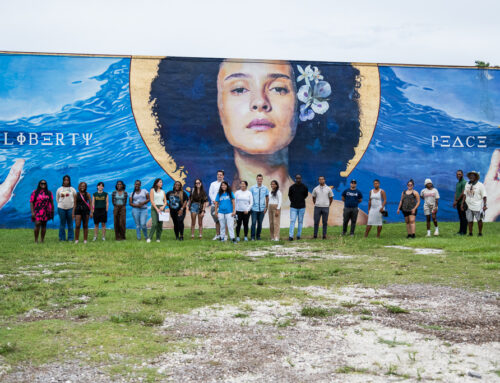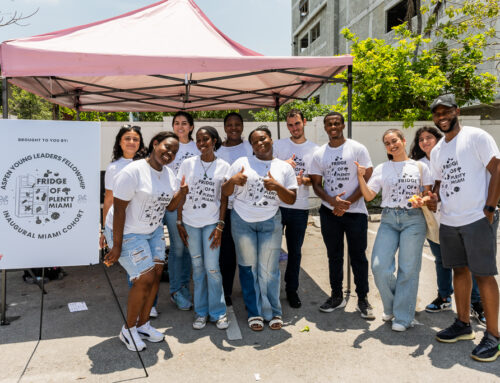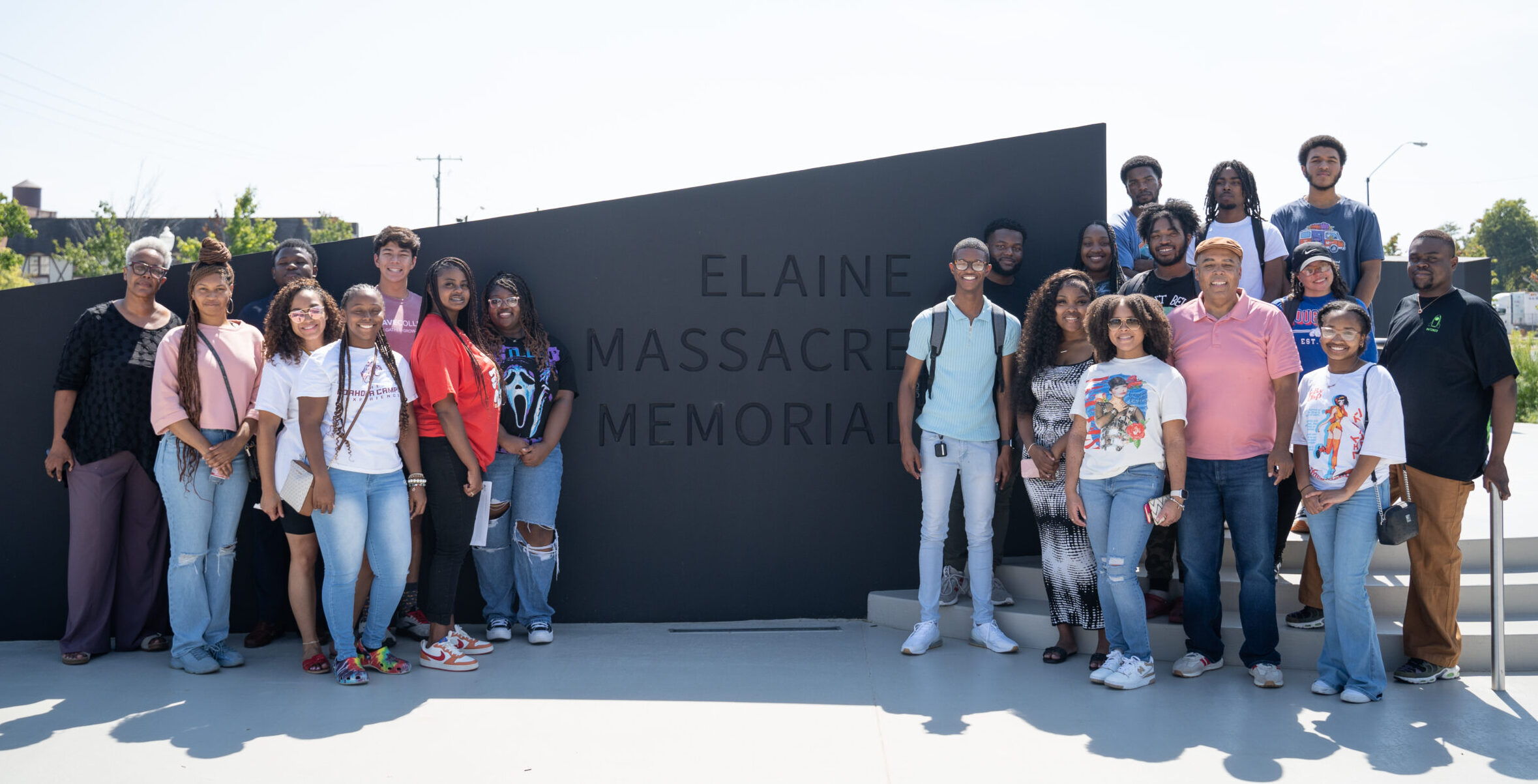
AYLF Mississippi & Arkansas Delta cohort 2023-24 on their local community tour, September 2023.
Planting Seeds
Nurturing Young People’s Service to Community
Prior to his experience with the Aspen Young Leaders Fellowship (AYLF), Nicholas Presley had no intention of settling down in his home state. “Being from Mississippi, you kind of want to leave Mississippi,” Presley, a former Fellow and Youth Facilitator with AYLF, which works with local youth ages 18-22 over the course of its 10-month run, says.
The program works to cultivate the existing leadership potential of its fellows through sessions facilitated by local change makers, ultimately culminating in each cohort’s impact project—a project designed by the fellows to address the needs of their community.
Presley’s AYLF experience occurred during a flashpoint in American history: disrupted by the Covid-19 pandemic and stunned by the murder of George Floyd, which ignited protests and conversations around systemic racism. Presley, who was raised in a rural community not far from the town of the Emmett Till murder trial, admitted he, and other fellows, were burned out by the hurt in the world around them. But he says that didn’t stop him from continuing to participate in the program. “I was doing this for passion. I wanted to find a way to be involved with my community.”
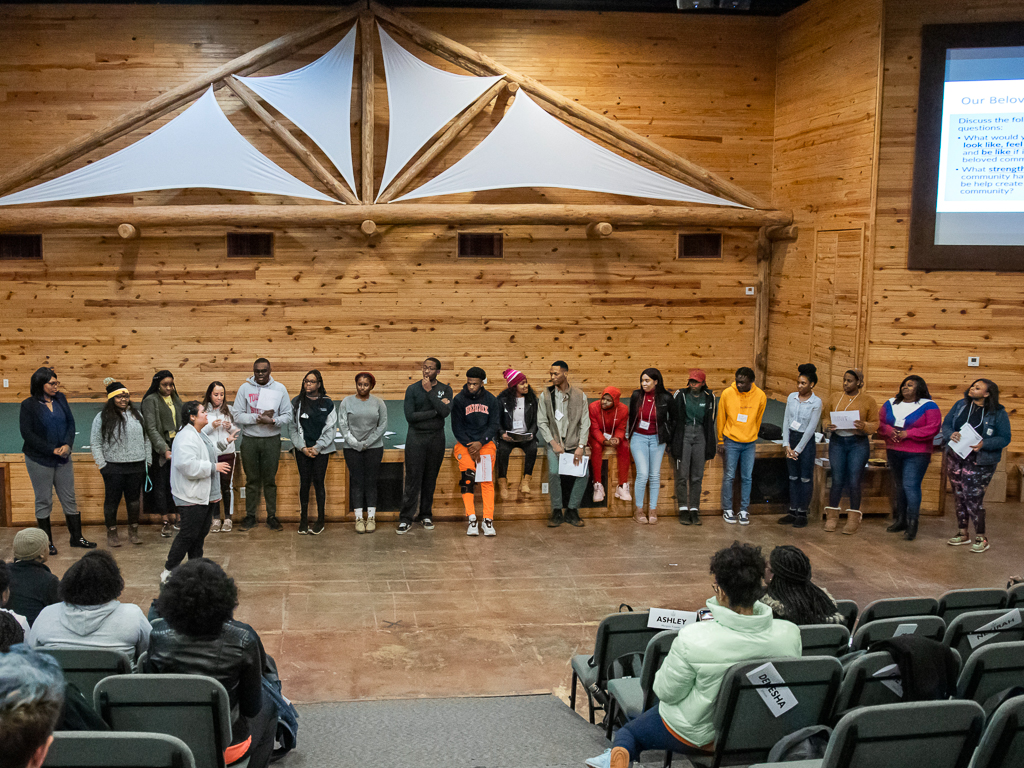
AYLF Ozarks Retreat Delta Cohort 2020
AYLF Mississippi & Arkansas 2020 cohort at retreat with the St. Louis 2020 cohort, including AYLF Senior Fellows Nicholas Presley and Kevin Martin, February 2020
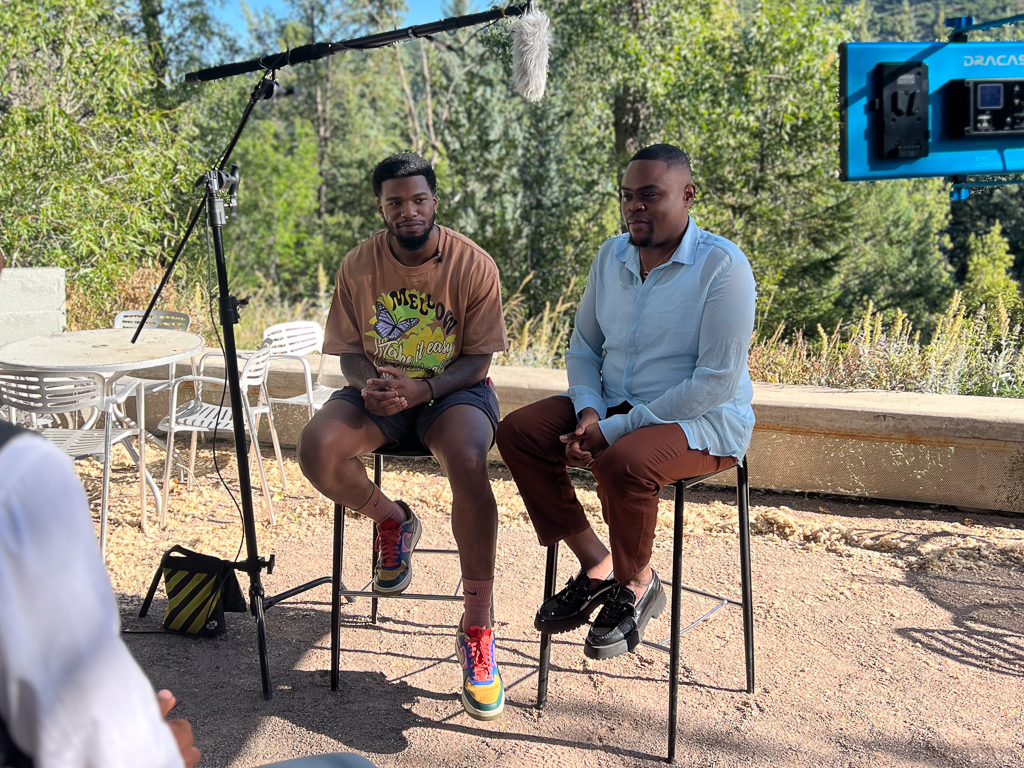
Nicholas Presley and Kevin Martin, Aspen Action Forum 2023
AYLF Senior Fellows Nicholas Presley and Kevin Martin at the Aspen Action Forum in Aspen, CO, July 2023
In the six years since the program’s first launch in the Delta, former fellows say that the program has helped them develop leadership skills and realize the potential of investing in their local communities.
“I look at the Arkansas Mississippi Delta as my lifelong project,” says Kevin Martin, a former fellow from Arkansas and current facilitator, who cites texts like Bell Hooks’ Kentucky is My Fate, a text-based-dialogue in the curriculum, as transformative. “If it wasn’t for them, I probably would not have come back to the Delta as early on. Especially being a part of a generation that was told to ‘get out, the Delta isn’t for you.’”
The Arkansas/Mississippi Delta, which has experienced much depopulation in recent years, is marked by a legacy of disenfranchisement that dates back to slavery and Jim Crow. It was the source of the Great Migration of the 20th century: the historical event during which hundreds of thousands of African-Americans fled in pursuit greater economic opportunities—and a refuge from racial violence—to industrial cities. The broader Delta region, which encompasses portions of some seven states, has also been marked by limited resources and investment, high unemployment rates, and low quality public schools, according to the U.S. Commission on Civil Rights.
Still, the Delta has retained a strong culture. “Some people may call us the land of the blues, the birthplace of the blues. Some people may describe us as being the poorest in the nation. But I will say it is one of the areas that has a lot of soul and culture—a lot of resilient people who have been through a lot and have found a way out of no way,” says Tyler Yarbrough, a former AYLF Fellow who was born and raised in Clarksdale, Miss.
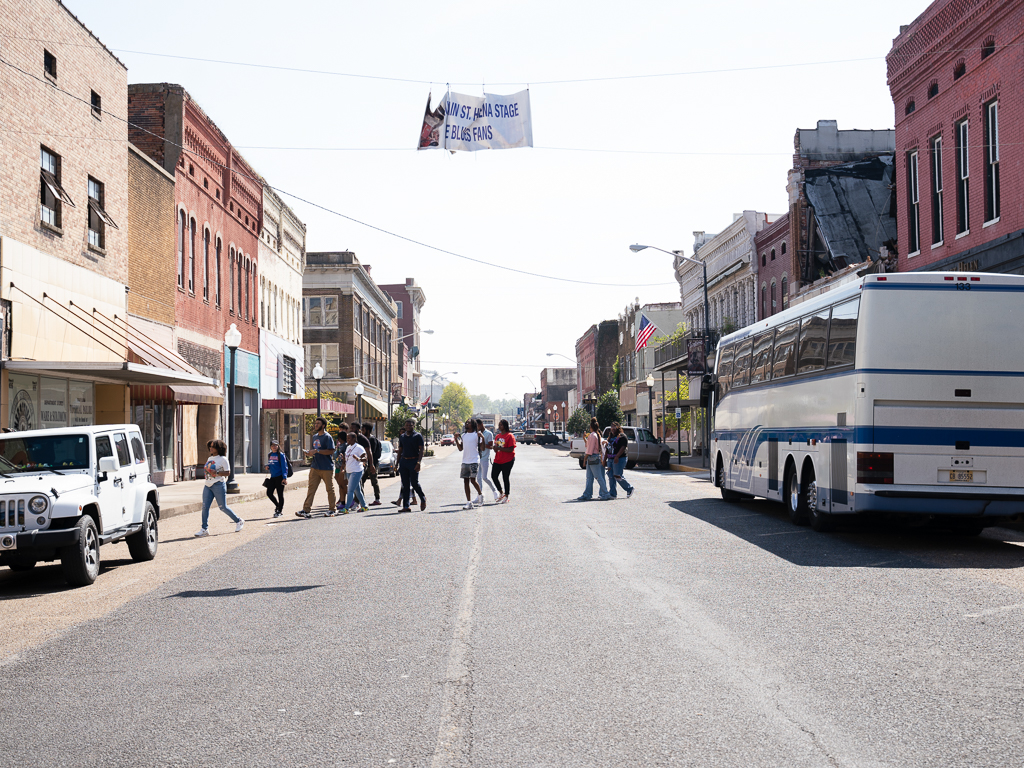
AYLF Mississippi & Arkansas Delta 2023-24 cohort on community tour, September 2023
AYLF Mississippi & Arkansas Delta 2023-24 cohort in Helena, AR, September 2023
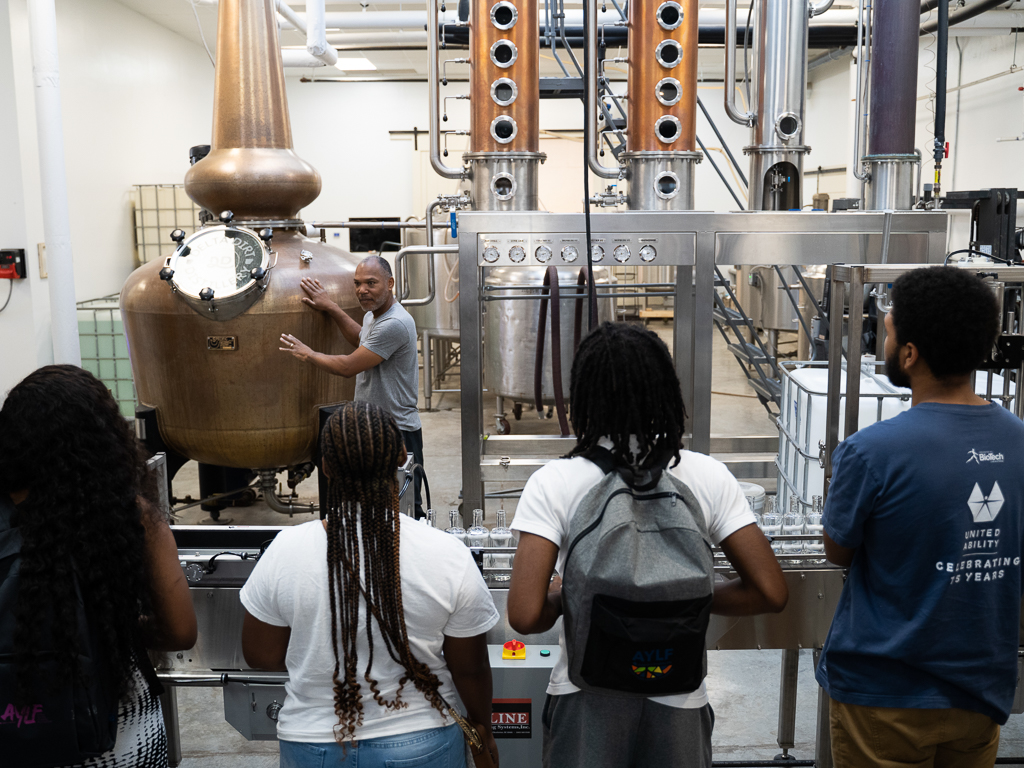
AYLF Delta 2023-24 cohort visits Delta Dirt Distillery, September 2023.
AYLF Mississippi & Arkansas Delta 2023-24 cohort at the Delta Dirt Distillery learning about entrepreneurship in Helena, AR, September 2023
For Abe Hudson, a program officer for the Walton Family Foundation, the fellowship aligns with the foundation’s greater goal to invest in coalition and capacity building opportunities in the Delta. And the foundation isn’t the only one. Hudson notes that there is a “quiet momentum” happening in the region that’s attracting greater investment and resources to the region. The Walton Family Foundation plays a significant role as a funder for AYLF. While the potential of the program is still budding, and the future of the fellowship’s impact largely depends on increasing visibility about the program, fellows and delivery team members say it’s been a lifeline.
“Programs like AYLF… can be transformative in a young person’s life from the Delta whereas if it existed in the Bronx, New York, it might just be another resource for them,” says Nicole Ross, a local action coordinator for AYLF in the Mississippi and Arkansas Delta. “I’ve seen more than a handful of people that are from this community that are so passionate about bringing resources to the community, and uplifting generations to come, and I feel like AYLF is a major part of that.”
Fellows mention the emotional impact of AYLF’s curriculum, the lessons learned about vulnerability and empathy, and the friendships made. “It felt like a sacred space,” says Yarborough. Hudson says he feels the program has given fellows the “soft skills to be able to communicate with emotional intelligence.” Others discuss the significance of finding a leadership program that did not require participants to be enrolled in college or hold a certain GPA, but instead focus on recruiting fellows who already exhibit an interest in generating change.
Yarbrough was running programs for first-year students and had a role in student government when he started the fellowship. “I was in AYLF while I was also running these programs and some of the stuff I was learning I implemented on campus,” he says, while mentioning how he pushed for the removal of a Confederate statue from his college campus and secured funding for a campus slavery tour that speaks to the real way his university was built.
Yarborough says that fellows, like himself, also benefited from AYLF’s connections and introduction to corporate leaders and businesses. “That was pretty life changing for me,” the 28-year-old manager of the Mississippi Delta branch for a national nonprofit called Partnership for a Healthier America, says. “It pushed me down this career path of just thinking through [my interest] in energy and sustainability.”
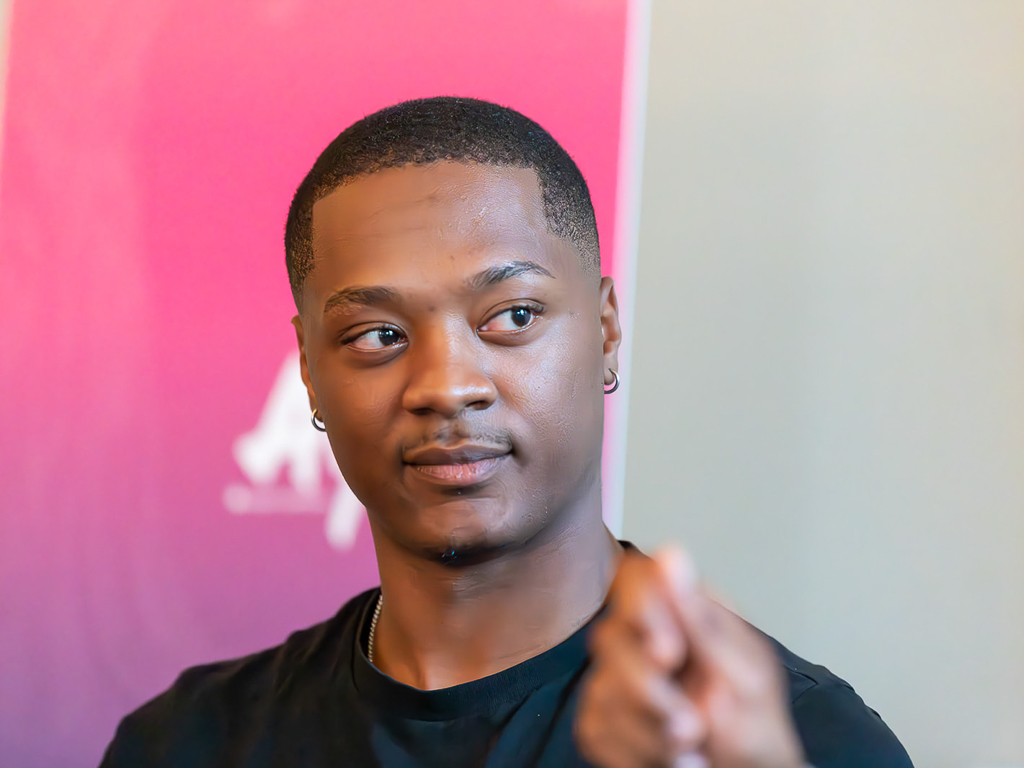
AYLF Senior Fellow Tyler Yarbrough on stage at the 2023 Delta Dream event in Clarksdale, MS, August 2023
AYLF Senior Fellow Tyler Yarbrough at the Delta Dreams event in Clarksdale, MS, August 2023.
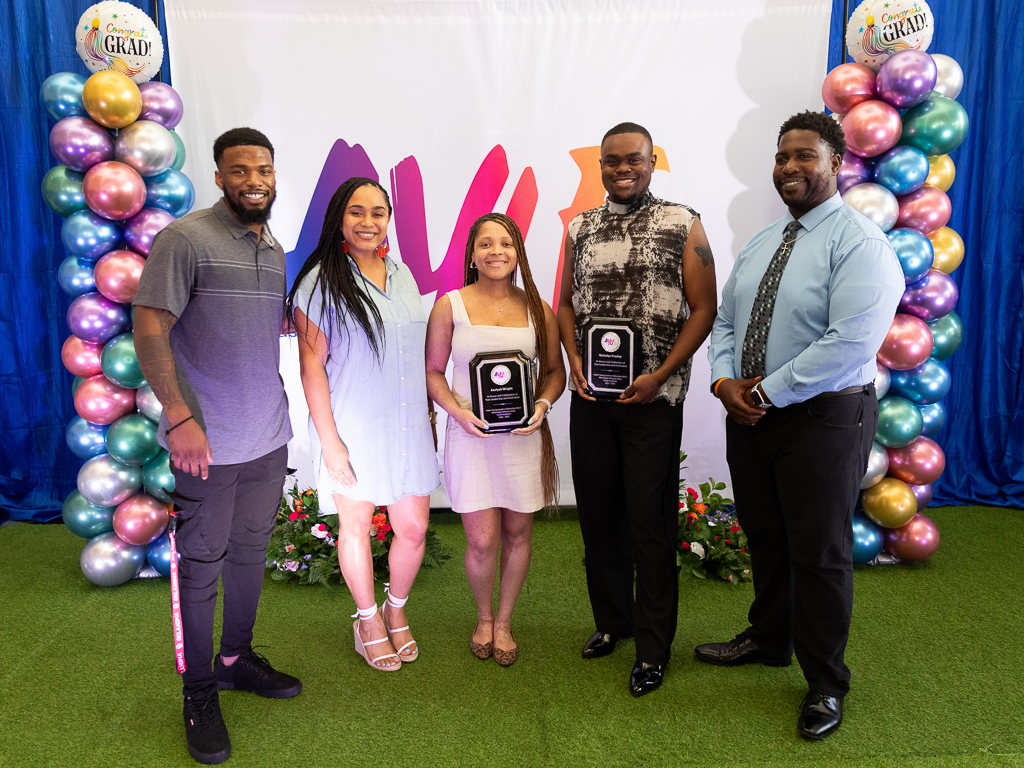
AYLF Graduation Photo of Delta Delivery Team 2024
Members of the AYLF Delta delivery team from left to right: Kevin Martin, Nicole Ross, Aasiyah Wright, Nicholas Presley, and James Forté, at the AYLF graduation in Clarksdale, MS, June 2024
Presley says the program allowed him to realize that leadership isn’t authoritative or individualistic. “As I kept engaging more with the materials and going to sessions, I came to understand that leadership is about fostering healthy environments, but mostly guidance, and also sharing community equity into your approach.”
Martin mentions that AYLF’s catalyst fund, which offers financial support for fellows who want to launch additional projects or initiatives after completing the 10-month fellowship, was instrumental in providing water to his local community. Many fellows focus on the program’s individual addition to their lives, whether that be access to internships or lessons on equity. “I cannot picture my life without AYLF, as corny as it sounds,” says Presley. “It brought out my sense of self.” But others see the program as a broader strategy to retain and build local talent. “If we cannot help to change the narrative that will encourage young people to stay here in 20 years, a lot of our adult communities will be no more,” says Hudson. “We need to be able to continue to empower those young people to do what they need to do, to lead in the best way that they see fit, so that others who are the same age, who are like-minded, will have a desire to stay.”
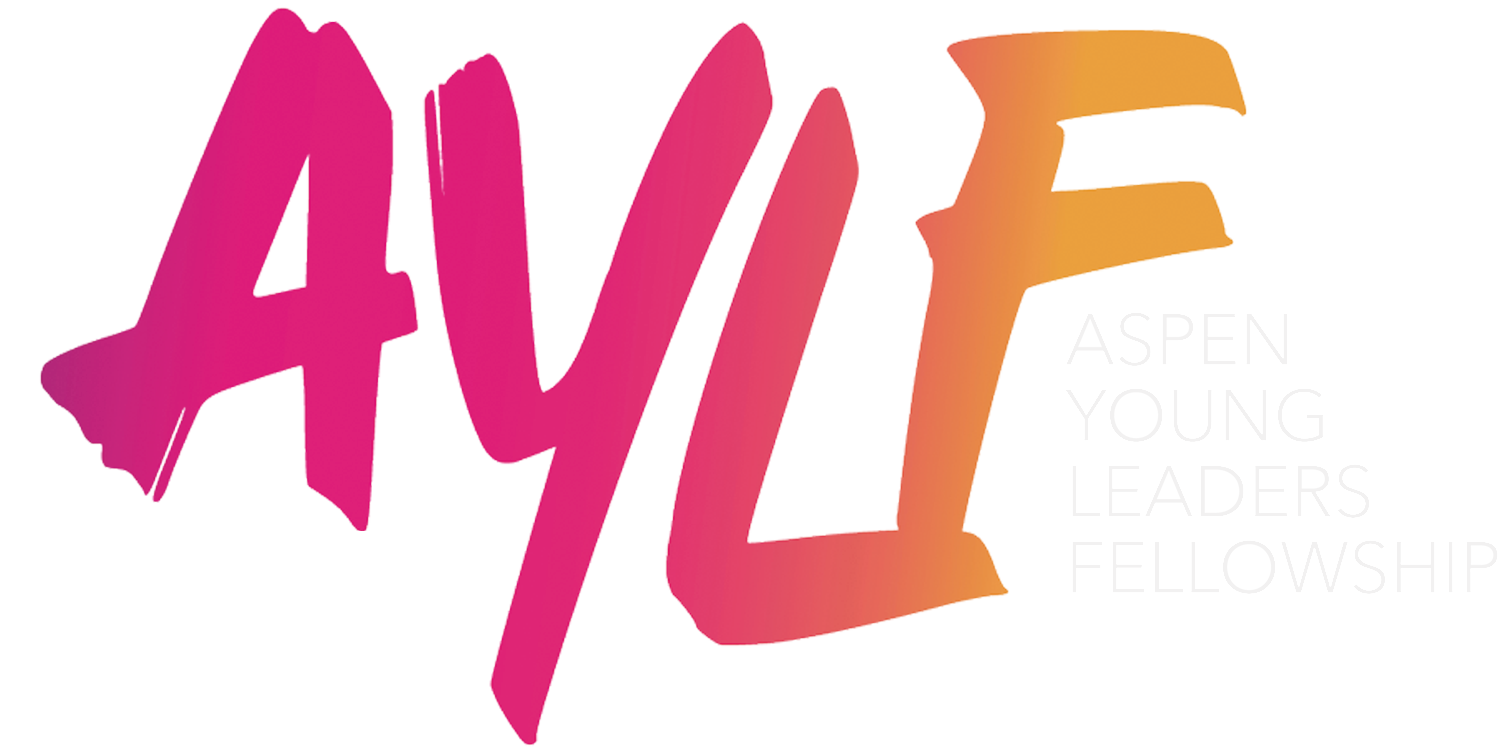
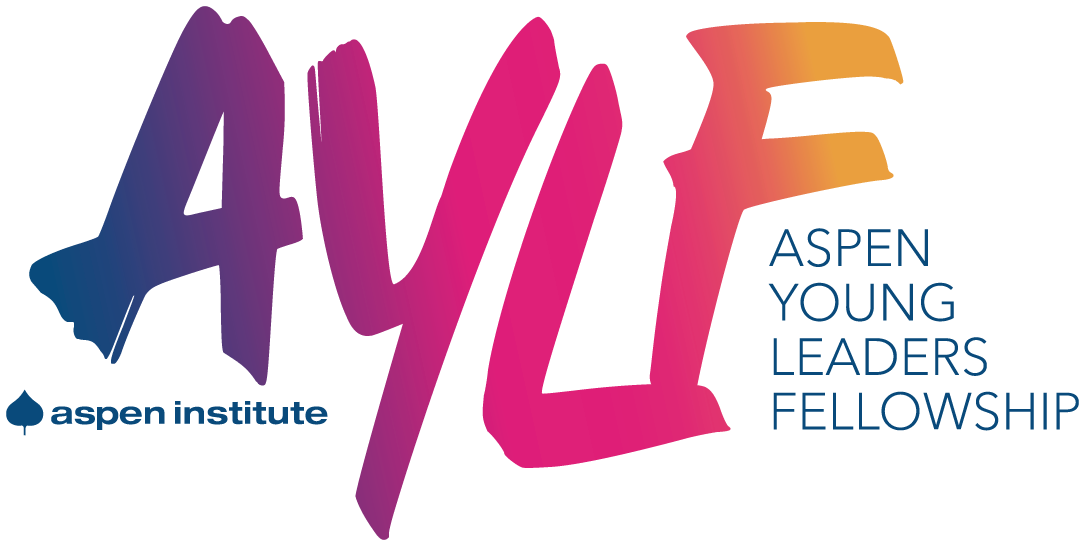
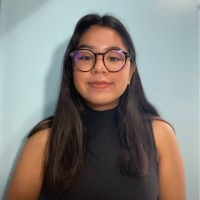 By Solcyré Burga, Aspen Young Leaders Fellowship Senior Fellow
By Solcyré Burga, Aspen Young Leaders Fellowship Senior Fellow